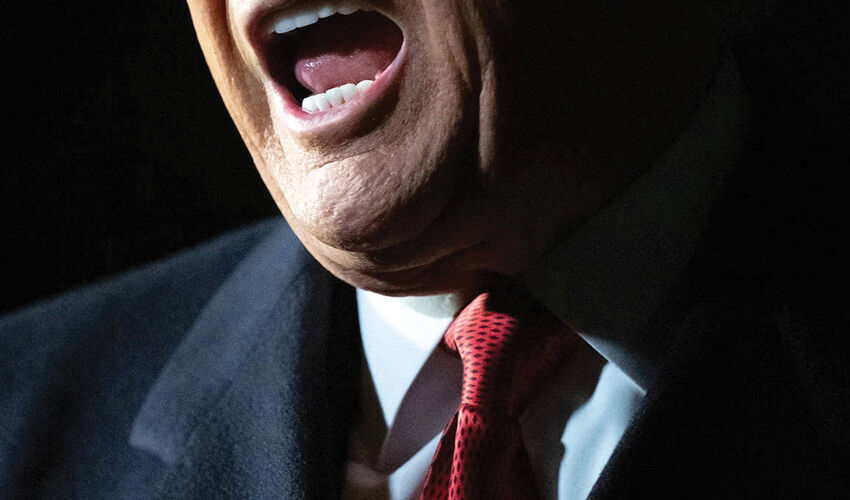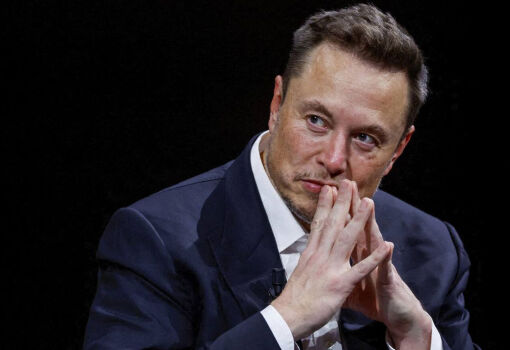
It was once common to speak of a “liberal international order”. This term was used even though the accompanying institutional arrangements were not always fully liberal, international or orderly. But after all, the point of the ideal is not to describe reality, but to guide behavior. For many decades, most countries have sought to be part of and contribute to the liberal order (although some have chosen to sponger or cheat the system).
Those times are undoubtedly over. We have entered a new era of global disorder. Understandably, the gradual rise of China and other developing countries was bound to challenge the system created by the Western powers after World War II. But the decisive factor in the demise of the liberal international order was the decision of its main architect, the United States, to abandon it. America’s leaders were no longer in tune with John F. Kennedy’s promise to “pay any price, bear any burden, endure any hardship, support any friend, and oppose any foe to assure the survival and success of freedom.”
Yes, America has not always been consistent in upholding international law or in supporting the UN and its multilateral system of cooperation. But there can be little doubt that without U.S. support, the whole edifice would collapse, which seems to be the case now. Under the second administration of President Donald Trump, America is openly denouncing the old liberal order, with Secretary of State Marco Rubio declaring that it is “not just obsolete; it is now a weapon used against us.”
The international order, by definition, presupposes common rules. But the Trump administration is openly hostile to such restrictions. It has blatantly pursued a policy of putting its own self-interest, in its own interpretation, above everything else, and has proven itself willing (even willingly) to brutalize friends and allies in the process.
Trump’s punitive duties are only part of the story. He has thrown all rules in the garbage in general, particularly by imposing duties on imports for reasons that have nothing to do with trade. The process has only just begun, but there is no doubt that the world economy will pay a heavy price for Trump’s destructive rule, and in the long run the US economy will probably suffer the most.
The very concept of international law has essentially been stripped out of US foreign and economic policy. Long-held notions of geopolitics as a rivalry between democratic and authoritarian regimes now look meaningless. Trump and his proxies talk about human rights only selectively, for example, making false claims about the genocide of white farmers in South Africa (with Palestinians in Gaza and the West Bank barely worth mentioning).
There was understandable discontent in America with the “perpetual wars” in Afghanistan and Iraq, and a belated recognition that foreign countries cannot simply be rebuilt under U.S. dictates. “Unipolar” moment of undisputed US power – in the period from the fall of the Berlin Wall to China’s emergence as a technological superpower – undoubtedly contributed to this American hubris.
But now the pendulum has swung the other way. From Greenland to the Panama Canal, America has become the engine of international disorder, aligning itself with Russia, with its delusional war of aggression against Ukraine and its burgeoning shadow war against the European Union. Meanwhile, entire regions – from the Horn of Africa to Sudan to the Sahel – are plunged into conflict and chaos, and no one seems to care. Moreover, America is busy with its own little “war of choice” against Nicolas Maduro’s regime in Venezuela.
Despite its industrial might and increased naval resources, China is unlikely to fill the vacuum left by the US. For now, the Chinese are acting cautiously, actively resisting what they perceive as intimidation by the US, but refraining from intervening in various conflicts around the world. China openly wants a new world order, not the continuation of the US-led liberal order that has prevailed for eighty years since World War II.
But no new order is visible on the horizon. We have entered a period of global disorder: anti-liberal regimes are gaining strength and the old structures of the international order are crumbling. These trends would be dangerous enough on their own, but they are made even more dangerous by climate change, the risk of pandemics, and the emergence of potentially destabilizing technologies, including AI.
Cooperation is needed to deal with these threats, but it is lacking. If there is any hope in this era of global disorder, it is to be found in small coalitions (“plurilateralism”) on specific issues – trade rules, global health, energy transition, and so on. Countries that recognize the dangers facing us will have to find new ways to join forces themselves.
Carl Bildt,
former Prime Minister and Foreign Minister of Sweden.
© Project Syndicate, 2025.
www.project-syndicate.org

